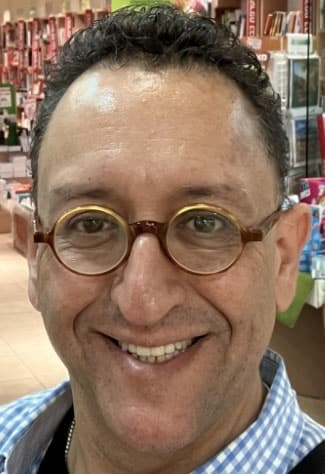The Irish writer and poet Oscar Wilde said, “Life imitates art far more than art imitates life.” Many would argue that the Bible is the Jewish people’s ultimate artistic masterpiece. If that’s the case, then Jewish history has been one long journey of “life imitating art,” and both the content and timing of this week’s haftarah (prophetic portion) are part of that tumultuous journey.
In what is the first of the three “haftarot of doom” leading up to the fast of Tisha b’Av, God asks the prophet Jeremiah (the ultimate prophet of doom): “What do you see?” Where God’s question is a query into Jeremiah’s prophetic ability, it is also a test of whether Jeremiah understands the brewing political and social problems within the Jewish state of his day. Jeremiah answers God’s question with a prophetic metaphor that reflects the impending doom on Israel: “I see a steaming pot.”
What was this “steaming pot”? Was it a description of Israel’s enemies who were waiting to unleash war and terror on the Jewish state? Was it a reflection on political, social and religious divisions that were brewing within Jewish society, about to reach a boiling point? It was both.
Israel’s enemies — in this case, the Babylonians — were prepared to march on Jerusalem and lay siege to the city: “They shall come, and shall each set up a throne, before the gates of Jerusalem, against its walls roundabout, and against all the towns of Judah (Jeremiah 1:15). The threats from Israel’s enemies were seen as a steaming pot by Jeremiah, and the pot was ready to explode any day.
Coinciding with the threats from beyond Israel’s borders were the equally disturbing threats from within Jewish society: “They have forsaken Me and sacrificed to other gods, and worshipped the works of their hands” (Jeremiah 1:16). Idolatry is understood as the moral decay of Jewish society. A further reading of the biblical narrative reveals (as the Talmud later pointed out) that the ultimate downfall of the first Jewish state was due to widespread idolatry, sexual immorality and bloodshed — Judaism’s three cardinal sins.
Jeremiah’s prophecy of doom — as explained by God — teaches us that the enemies from beyond our borders go hand in hand with the threats from within. This message was carried into the second Jewish state, where the steaming pot of its day was the Romans from without and sinat hinam — baseless hatred — from within. That poisonous combination brought about the destruction of the second Jewish state.
Thousands of years later, Jeremiah’s steaming-pot vision is, unfortunately, alive and well. In fact, as I have just returned from a month-long stay in Israel, if one were to ask me, “What did you see in Israel?” I would refer the questioner to Jeremiah’s words, for they are the most apt description of today’s “matzav” (the term used by Israelis to describe a seemingly hopeless situation of war). Rockets rain over Israel from Israel’s enemies, and, meanwhile, Israeli society is as divided as it’s ever been — politically, religiously and socially. From where can we draw strength in these challenging times?
During my studies at the Shalom Hartman Institute this past month, I heard my dear friend Yossi Klein Halevi tell us that, in his opinion, the modern-day prophets of Israel are her singers and songwriters. Through their lyrics and music, they are providing the vision and inspiration for Israelis to stay strong, dream of a better world and not lose hope in the face of despair.
Despite its prophecy of doom, this week’s haftarah does end on a note of hope. But rather than quote from ancient sources, I will conclude this meditation on modern-day Israel — in the spirit of Yossi’s beautiful teaching — by offering words from Danny Sanderson, one of Israel’s legendary singers and songwriters.
In his song “Migdalor” — which means “Light Tower” — the chorus offers an inspirational vision of hope for today’s Israel:
Lift your head up high, my friend
And do not be afraid,
Grab hold of the steering wheel with a determined hand.
If the road ahead seems difficult, never ever give up,
For at the end of every storm, there lies dry land.
Maybe this time around, with Jeremiah’s warning and Sanderson’s vision, we can extinguish the flames of the steaming pot.
Rabbi Daniel Bouskila is the director of the Sephardic Educational Center, an international educational and cultural organization with its own campus in the Old City of Jerusalem. Follow Rabbi Bouskila’s teachings on his blogs at rabbidanielbouskila.blogspot.com and jewishjournal.com (Through Sephardic Lenses), or on his Facebook page (Rabbi Daniel Bouskila).






















 More news and opinions than at a Shabbat dinner, right in your inbox.
More news and opinions than at a Shabbat dinner, right in your inbox.